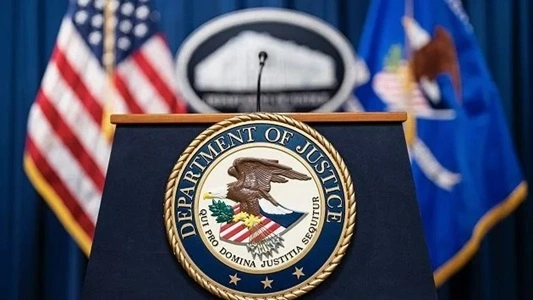The Trump administration’s Department of Justice (DOJ) has been at the forefront of efforts to enforce stricter immigration policies across the United States. One notable instance of this was its lawsuit against the state of Illinois and the city of Chicago over alleged sanctuary policies that the DOJ claimed interfered with federal immigration enforcement. This legal battle underscores the broader debate over state and local autonomy versus federal authority in immigration matters, a contentious issue that continues to divide lawmakers, courts, and the public.
Background of the Lawsuit
The lawsuit, filed in the Northern District of Illinois, challenges Illinois’ Trust Act and Chicago’s sanctuary city policies. These laws and policies limit local law enforcement’s cooperation with federal immigration authorities, such as the Immigration and Customs Enforcement (ICE). For instance, the Illinois Trust Act prohibits local police from detaining individuals based solely on ICE detainer requests without a judicial warrant. Similarly, Chicago’s sanctuary city policies restrict the sharing of information with ICE regarding an individual’s immigration status.
The DOJ argued that such measures obstruct federal efforts to identify and deport undocumented immigrants, particularly those with criminal records. Former Attorney General Jeff Sessions and his successor, William Barr, repeatedly asserted that sanctuary policies jeopardize public safety by shielding dangerous criminals from deportation.
Legal Basis for the DOJ’s Claims
At the heart of the DOJ’s case is the Supremacy Clause of the U.S. Constitution, which establishes that federal law takes precedence over state and local laws. The Trump administration argued that Illinois and Chicago’s policies conflict with federal immigration laws, specifically the Immigration and Nationality Act (INA), which grants the federal government broad authority over immigration enforcement.
The DOJ also relied on 8 U.S.C. § 1373, a federal statute that prohibits local governments from restricting communication with federal immigration authorities. The lawsuit alleged that Illinois and Chicago violated this statute by refusing to provide federal agencies with information about individuals’ immigration status.
Illinois and Chicago’s Defense
In response to the lawsuit, Illinois and Chicago defended their policies as necessary to maintain trust between immigrant communities and local law enforcement. They argued that when immigrants fear deportation, they are less likely to report crimes or cooperate with police investigations, making communities less safe.
Moreover, Illinois and Chicago contended that the federal government cannot compel state and local governments to enforce federal immigration laws under the Tenth Amendment, which protects states’ rights. This argument aligns with the anti-commandeering doctrine, established in Supreme Court cases such as Printz v. United States (1997), which holds that the federal government cannot force states to carry out federal regulatory programs.
Implications for Immigration Policy
This lawsuit highlights the tension between the federal government’s responsibility to enforce immigration laws and states’ rights to enact policies that reflect their communities’ values and priorities. Supporters of sanctuary policies argue that they promote public safety and protect vulnerable immigrant populations. Critics, on the other hand, contend that these policies create safe havens for individuals who violate federal laws and undermine the rule of law.
The outcome of this case could have far-reaching implications for the future of immigration enforcement in the United States. A ruling in favor of the DOJ would strengthen the federal government’s ability to override state and local policies that conflict with its immigration agenda. Conversely, a decision upholding Illinois and Chicago’s policies would reaffirm the rights of states and cities to resist federal mandates in areas traditionally reserved for local control.
Broader Political Context
The lawsuit is emblematic of the Trump administration’s broader crackdown on sanctuary jurisdictions. Throughout his presidency, Donald Trump made immigration enforcement a cornerstone of his platform, often targeting states and cities that resisted federal policies. The DOJ under Trump not only filed lawsuits against sanctuary jurisdictions but also attempted to withhold federal grant funding from them, a move that faced significant legal challenges and mixed results in the courts.
This legal battle also reflects the broader ideological divide in the United States over immigration. Conservative leaders and voters tend to favor stricter enforcement and argue that sanctuary policies undermine national security. In contrast, liberal leaders and immigrant advocacy groups emphasize the importance of inclusivity, community safety, and the protection of human rights.
Conclusion
The DOJ’s lawsuit against Illinois and Chicago is more than just a legal dispute; it is a microcosm of the broader struggle over immigration policy in the United States. At its core, this case raises fundamental questions about the balance of power between federal and local governments and the role of law enforcement in immigration matters.
As the courts deliberate on this case, the implications will resonate far beyond Illinois and Chicago, potentially shaping the landscape of immigration enforcement for years to come. Whether the federal government’s authority will prevail or local autonomy will be upheld remains to be seen, but one thing is clear: the outcome will have lasting consequences for the nation’s immigration policy and the millions of lives it affects.













